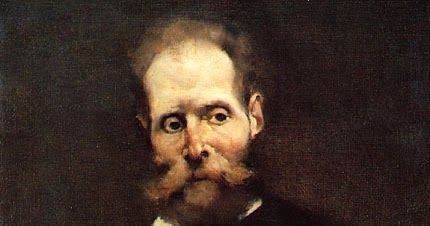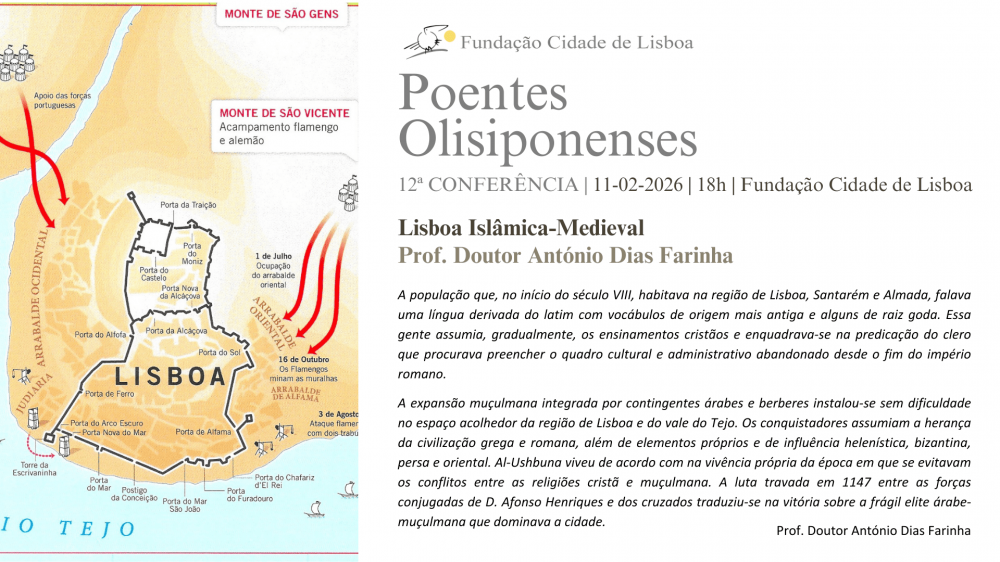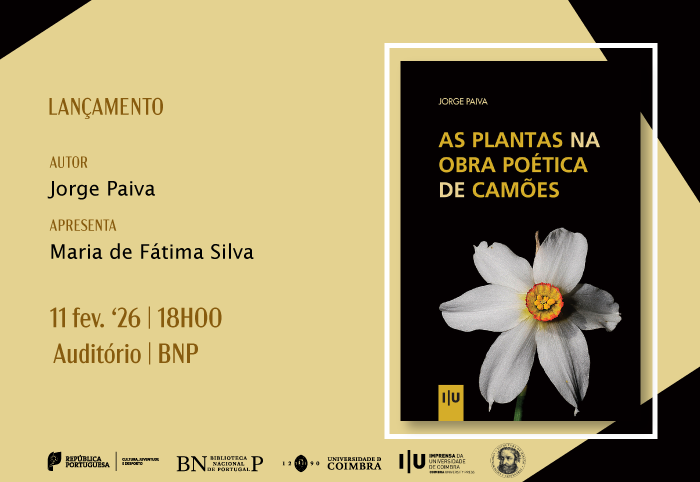Obras de referência da cultura portuguesa
"SONETOS COMPLETOS"
de ANTERO DE QUENTAL
Análise de Miguel Real
Tradução: Alexandra Leitão

ANTERO DE QUENTAL – OS SONETOS:
O FIM DOS VALORES CLÁSSICOS NA LITERATURA
Sonetos Completos, de 1886, com reedição revista e aumentada e prefácio de Oliveira Martins, que coligiu, é considerado pelo próprio Antero de Quental (1842 – 1891) como “que fiz de melhor, mais pessoal e expressivo. É um cento deles (…), espécie de autobiografia psicológica, que pelo menos valerá como documento, pois nela está retratada uma evolução intelectual e sentimental. Se de mim ficar alguma coisa nas letras portuguesas, creio que será este livrinho” (carta a A. Azevedo de Castelo-Branco, de 1885). A Batalha Reis confessa ser a edição dos Sonetos o seu “testamento poético”. A D. Carolina M. de Vasconcelos elucida que resgatara a forma poética do soneto levado por uma “predileção singular e impensada (pois, quando comecei, ninguém os fazia já…)”, esclarecendo que esta sua inclinação lhe viera porventura da “influência dos nossos poetas do século XVI, que foram dos primeiros que conheci. O fundo de idealismo que há naqueles poetas apossou-se então de mim, e os seus sonetos, especialmente os de Camões, tornaram-se para mim um Evangelho do sentimento”. “Filósofo que se exprime pela boca do poeta”, os Sonetos manifestam simultaneamente (1) o pessimismo schopenhauriano marcante após a crise pessoal de 1875; (2) o drama psicológico da totalidade da existência de Antero, dividido entre a luta pelo “Ideal” (a atualização histórica dos valores clássicos e absolutos do cristianismo) e a “arena” mesquinha e bloqueadora do viver social; (3) a reflexão pessoal dos grandes temas do pensamento vistos à luz das ideias da Geração de 70; (4) a permanente e recorrente frustração, individual e coletiva, de todas as gerações e pensadores que intentam revolucionar Portugal, frustrando-se a si próprios, e, no caso de Antero, levando-o ao suicídio.
Pensador combatente do naturalismo e do positivismo, resgatador da metafísica, então comteanamente considerada fonte de erro e ilusão, Antero de Quental teceu os seus sonetos de um véu de transcendência como lugar natural do pensamento, sobretudo os compostos a partir de 1862/66. Por via de uma meditação metafísica nova, fundada no sentimento do sagrado, como relação inconsútil entre Deus (a “Ideia”, o “Nada”, o “Absoluto”) e o Homem, Antero ressuscita o lirismo poético português (então soterrado pela moda do realismo/naturalismo) por via da expressão tensa e dialética entre os sentimentos de combate e renúncia, revolta e resignação, liberdade e determinismo. Desde sempre marcado pelo hegelianismo (“o hegelianismo foi o ponto de partida das minhas especulações filosóficas, e posso dizer que foi dentro dele que se deu a minha evolução intelectual”), Antero funde o Absoluto hegeliano com o sentimento humano do Deus católico da sua infância em Ponta Delgada, um Deus/Absoluto tanto religioso, refúgio último das almas inquietas em forma de Nirvana, de eternidade e de “Morte” consoladora, quanto filosófica, “Ideia” ou essência imanente do mundo e da existência humana. Areópago de ideias, sempre intranquilas e sempre frustrantes, Oliveira Martins, verdadeiro motor da publicação dos Sonetos, registou no “Prefácio” que a ideia contida do livro (“amargas flores de uma mocidade”) “não será um catecismo budista, não pode ser nenhuma revelação milagrosa do verdadeiro sistema [filosófico] porque a sabedoria nos diz que toda a propensão de verdade é ilusória, pois sendo nós, a nossa inteligência, os nossos pensamentos, simples e fugitivas contingências, é loucura pensar que jamais possamos definir o Absoluto. Cada qual sente-o a seu modo, segundo o seu temperamento; e sábio é aquele que se limita a registar as relações das coisas”. Os Sonetos de Antero constituem-se justamente como o registo poético das “relações [eternas) das coisas”.
Não mais de um ano após a elaboração do seu projecto da União Democrática Portuguesa, Antero, trágico na sua heroicidade de fogoso cavaleiro da regeneração política de Portugal, desinteressa-se diretamente da atividade política, consolando-se com as suas reflexões filosóficas, a preparação da segunda edição de Odes Modernas (1875), a preparação do Tesouro Poético da Infância (1883) e a criação de novos sonetos, onde exprime, em cada verso, um dos mais intensos dramas de divisão da consciência até hoje registado na poesia portuguesa. Quando Antero, em 1890, assume a presidência da Liga Patriótica do Norte, liga criada como reação ao Ultimatum inglês, o discurso que então profere em 7 de Março já não possui o tom ardente e revolucionário de quase vinte anos antes, e, ainda que consensual e patriótico, como a situação o exigia, não deixa de ser acusatório contra os dirigentes políticos e o estado internacional de humilhação de Portugal, operando a síntese entre o socialismo, enquanto sistema político novo e revolucionário, e as conclusões morais (Liberdade, Razão, Justiça, Bem...) do último capítulo de Tendências Gerais da Filosofia, publicado no ano seguinte, na Revista de Portugal, de Eça de Queirós. Os sonetos de Antero da sua última fase, a fase poética do “humorismo transcendente”, na designação de Oliveira Martins, não podem ser filosoficamente compreendidos senão integrados neste espírito de síntese ou reconciliação entre o ardor militante do jovem Antero e a dominância de valores clássicos constantes em toda a sua obra, agora com a expressa identificação entre Não-Ser (Nada, “Nirvana”), Inconsciente, Morte e Deus ou Absoluto.
Esta “síntese” entre a ciência e a metafísica, entre o materialismo e o idealismo, ou seja, o novo “materialismo idealista”, é justamente a filosofia que exporá em Tendências Gerais..., um dos mais belos livros de filosofia escritos no Portugal contemporâneo, constituindo, só por si, porta de acesso do autor à história da filosofia em Portugal. Gradativa e evolutiva, a liberdade evidencia-se, no novo espiritualismo, como aspiração do universo, que “só no espírito humano [se] realiza. É por isso que a História é especialmente o teatro da liberdade”. Deste modo, acrescido ao Eu (à Consciência), a Liberdade evidencia-se como a mais importante categoria filosófica do novo espiritualismo português.
ANTERO DE QUENTAL – OS SONETOS:
THE END OF CLASSICAL VALUES IN LITERATURE
Sonetos Completos, dated 1886, a revised and enlarged edition with a preface by Oliveira Martins, who was the collator, is considered by Antero de Quental himself (1842–1891) as “one of my best works, more personal and expressive. There are about one hundred (…), a sort of psychological autobiography, so that it will at least have merit as a document, as it portrays an intellectual and sentimental evolution. If I leave something of mine in Portuguese writing, I believe it will be this little book”, (letter to A. Azevedo de Castelo-Branco in 1885). To Batalha Reis he confesses that this edition of Os Sonetos is his “poetical testament”. Writing to Carolina Michaelis de Vasconcelos he explains that he had rescued the poetical form of the sonnet inspired by a “singular and thoughtless predilection (because when I started nobody was writing them any longer…)”, clarifying that his inclination had come perhaps from the “influence of our 16th century poets, who were the first I encountered. The basis of idealism in those poets then took hold of me and their sonnets, particularly those of Camões, became a gospel of feeling”. “A philosopher expressing himself through the mouth of a poet”, these sonnets also show (1) the marked Schopenhaurian pessimism following his personal crisis of 1875; (2) the psychological drama of Antero’s entire existence, divided between the struggle for the “ideal” (the historical updating of Christianity’s classical and absolute values) and the small-minded and constipating “arena” of social life; (3) the personal reflection of the major themes of thought in the light of the ideas of the 70s Generation; (4) the permanent and recurring individual and collective frustration of all generations and thinkers who tried to revolutionise Portugal, frustrating themselves and in Antero’s case, leading him to suicide.
A thinker who fought for naturalism and positivism, rescuing metaphysics, then in the style of Comte considered a source of error and illusion, Antero de Quental wove his sonnets from a veil of transcendence as the natural place for thought, in particular those composed after 1862/66. By means of a new metaphysical meditation, founded on a feeling of what is sacred, as a seamless relation between God (the “idea”, “nothing”, the “absolute”) and Man, Antero resuscitated Portuguese poetical lyricism (then buried by the fashion for realism/naturalism) through the tense and dialectical expression between the feelings of combat and renunciation, revolt and resignation, freedom and determinism. Always marked by Hegelianism (“Hegelianism was the starting point for my philosophical speculations and I can say that within it I grew intellectually”), Antero blends the Hegelian Absolute with the human feeling of the Catholic God of his childhood in Ponta Delgada, a God/Absolute who is both religious, the last refuge of the unquiet souls in the form of Nirvana, of eternity and consoling “Death”, and also philosophical, the “idea” or essence emanating from the world and from human existence. Areopagus of ideas, always unquiet and always frustrating, Oliveira Martins, the driving force behind the publication of Os Sonetos, registered in his preface that the idea in the book (“bitter flowers of youth”) “is not a Buddhist catechism and cannot be a miraculous revelation of the true [philosophical] system, because wisdom tells us that all propensity for truth is illusionary, because as we, our intelligence, our thoughts, are simple and fleeting contingencies, it is madness to think that we can never define the Absolute. Each one feels it in his own way, according to his temperament; wise is he who merely registers the relation with things”. Antero’s sonnets are precisely a poetical record of the “[eternal] relations of things”.
Not more than one year after drawing up his project for the Portuguese Democratic Union, tragic in his heroic stance as the fiery knight of Portugal’s political regeneration, Antero lost all direct interest in political activity and was consoled by his philosophical reflections, the preparation of the second edition of Odes Modernos (1875), the preparation of Tesouro Poético da Infância (1883) and the creation of new sonnets where in each verse he expresses one of the most intense dramas of the division of conscience so far registered in Portuguese poetry. When in 1890 Antero took over the leadership of the North Patriotic league, created in reaction to the British Ultimatum, his speech of 7 March no longer had the ardent and revolutionary tone of almost twenty years’ earlier. Although consensual and patriotic, as required by the situation, he was nevertheless accusatory against the political leaders and the international humiliation of Portugal, operating the synthesis between socialism as a new and revolutionary political system and the moral conclusions (Freedom, Reason, Justice, Good…) of the last chapter of Tendências Gerais da Filosofia, published the following year in Revista de Portugal by Eça de Queirós. Antero’s sonnets in the last phase, the poetical phase of “transcendent humourism” as described by Oliveira Martins, cannot be philosophically understood unless integrated in this spirit of synthesis or reconciliation between the militant ardour of the young Antero and the dominance of classical values contained in all his work, now with the express identification between Not-being (Nothing, “Nirvana”), Unawareness, Death and God or Absolute.
This “synthesis” between science and metaphysics, materialism and idealism, i.e. the new “idealist materialism” is precisely the philosophy that will be expounded in Tendências Gerais da Filosofia, one of the best philosophical works written in contemporary Portugal, in itself the author’s door to the history of philosophy in Portugal. Gradated and evolutionary, freedom stands out in this new spiritualism as an aspiration of the universe which “only in man’s spirit [can be] realised. That is why history is especially the theatre of freedom”. Thus, with I (conscience) freedom is shown to be the most important philosophical category of the new Portuguese spiritualism.
Obras de Referência da Cultura Portuguesa
projeto desenvolvido pelo Centro Nacional de Cultura
com o apoio do Ministério da Cultura

 Divulgue aqui os seus eventos
Divulgue aqui os seus eventos













